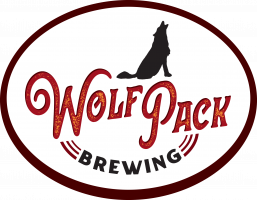Hops
|
Amount
|
Variety
|
Cost
|
Type
|
AA
|
Use
|
Time
|
IBU
|
Bill %
|
|
16 g |
Pacific Jade16 g Pacific Jade Hops |
|
Pellet |
13.5 |
Boil
|
60 min |
24.64 |
61.5% |
|
10 g |
Pacific Jade10 g Pacific Jade Hops |
|
Pellet |
13.5 |
Boil
|
20 min |
9.33 |
38.5% |
|
26 g
/ $ 0.00
|
Hops Summary
|
Amount
|
Variety
|
Cost
|
IBU
|
Bill %
|
|
26 g |
Pacific Jade (Pellet) 26 g Pacific Jade (Pellet) Hops |
|
33.97 |
100% |
|
26 g
/ $ 0.00
|
Mash Guidelines
|
Amount
|
Description
|
Type
|
Start Temp
|
Target Temp
|
Time
|
|
14 L |
|
Infusion |
-- |
63 °C |
60 min |
|
18.9 L |
|
Infusion |
-- |
76 °C |
-- |
Starting Mash Thickness:
2.5 L/kg
|
Priming
|
Method: co2
Amount: 2.12 bar
Temp: 20 °C
CO2 Level: 2.7 Volumes |
Target Water Profile
Light colored and hoppy
Notes
The suggested mineral additions for this recipe assume an average NZ water profile and should be fine for most NZ water sources. The target water profile in ppm is shown above.
- This recipe is designed to include mineral additions in the mash. If you do not have scales, 1 flat tsp/4g each of gypsum and calcium chloride will be a close approximation. The mineral additions are designed to target an optimal mash pH of ~5.2 without the need for larger amounts of acidulated malt. Calcium is also essential for stabilising mash enzymes and for yeast health. The mineral additions are also very important for the flavour profile of the beer. If you do not have brewing salts in your home brewery, they are available for purchase on the LoB website and will last a great many brews for a small cost.
- All of our hops are packaged in 50, 100 and 200 g packs. This means that for this recipe you will have an extra 24 g of Pacific Jade hops. You may wish to use some of them to adjust the bittering if the current stocks of hops are a lower alpha acid %, or keep them for another brew.
- If you wish (particularly if your system requires excessive sparging, below SG 1.012), add sufficient lactic acid to the sparge water to lower the pH to 5.6 prior to heating (~ 0.5 - 1.0 ml/10l lactic acid depending on water source).
- We recommend you add kettle finings (whirlflock, Irish Moss). and yeast nutrient 15 min before the end of boil.
- Cool the wort to 18 deg C and promptly transfer to a fermenter.
- We strongly recommend that the yeast be rehydrated in sterile warm water per the manufacturer’s instructions. If not, you may lose up to 50% cell viability. Pitch into well aerated wort at 18 deg C and allow to rise to 20 deg C.
- When the primary ferment is complete, hold the fermentation temperature at 20 deg C for 7-14 days. Two-three weeks from start to finish is a good rule of thumb.
- When ready, rack the beer to a CO2 purged keg and force carbonate to around 2.7 vols CO2. Alternatively, for an authentic sparkling ale presentation, bottle or keg conditioning with priming sugar is a great option. Do not cold crash if you choose this option and do not rush the beer. A stable finishing gravity is a must (one week for clean beers is a good safety margin) and use a priming calculator. For those who choose to bottle condition, we recommend targeting between 3.0-3.5 vols C02.

Last Updated and Sharing

- Public: Yup, Shared
- Last Updated: 2023-02-16 08:20 UTC
For quick copying and pasting to a text based forum or email.
Click the Download as HTML file button below.
Recipe costs can be adjusted by changing the batch size. They won't be saved but will give you an idea of costs if your final yield was different.
|
Cost $ |
Cost % |
| Fermentables |
$ |
|
Steeping Grains
(Extract Only) |
$ |
|
| Hops |
$ |
|
| Yeast |
$ |
|
| Other |
$ |
|
| Cost Per Barrel |
$ 0.00 |
|
| Cost Per Pint |
$ 0.00 |
|
| Total Cost |
$ 0.00 |
|
Discussion about this recipe:
